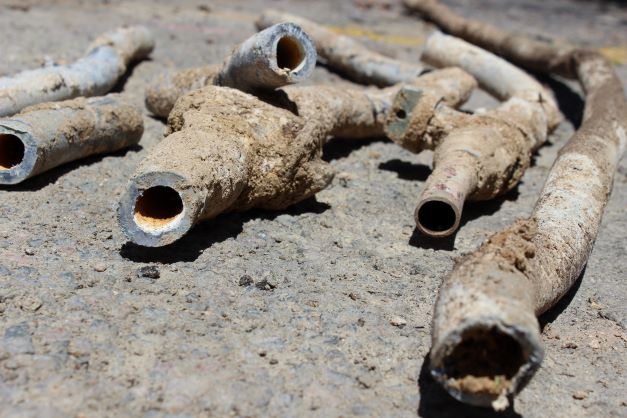EPA finds Denver Water’s Lead Reduction Program effective
Publilshed by the U.S. Environmental Protection Agency (EPA)
DENVER – The U.S. Environmental Protection Agency (EPA) has approved Denver Water’s comprehensive approach for reducing lead in drinking water through the issuance of a final variance under the Safe Drinking Water Act. The variance allows Denver Water to continue to implement a set of actions, called the Lead Reduction Program Plan, which work together to reduce lead in Denver’s drinking water. Denver Water is also receiving $76 million in funding from the Bipartisan Infrastructure Law to accelerate the pace of the lead service line replacement actions specified in the plan.
“Denver Water’s approach to tackling lead in drinking water has been remarkable and an example for other communities across the country,” said EPA Regional Administrator KC Becker. “Thanks to new funding from the Bipartisan Infrastructure Law the utility’s customers can expect an even faster lead service line replacement schedule delivering health protections for children and adults across the Denver area.
As a result of EPA’s first-of-its-kind lead variance approval, Denver Water will continue to:
- Replace all lead service lines at no direct cost to customers
- Control lead corrosion with pH and alkalinity treatment
- Determine the locations of lead service lines that connect homes and buildings to water mains
- Provide a water pitcher filter certified to remove lead to customers with lead service lines
- Conduct extensive community outreach and education

In 2019, EPA issued the first lead variance in the country for Denver Water. EPA approved the initial variance to evaluate if Denver Water’s alternative approach to addressing a lead action level exceedance could be effective. After evaluating data, EPA is approving another variance to allow Denver Water to continue with the current plan which has been shown to be more effective than orthophosphate treatment, the method of water treatment which would have been required under federal and state regulations.
EPA is committed to incorporating environmental justice into all decisions. Denver Water’s variance does not result in disproportionate impacts to areas with health equity and environmental justice concerns, and the utility is placing a priority on underserved communities and homes with large numbers of infants and children. Specifically, Denver Water is ensuring that areas with environmental justice concerns receive the same or better rates of both lead service line replacements and filter outreach and education compared to the overall service area.

“Denver Water’s first priority is sustaining our communities by protecting the health of our customers,” said Jim Lochhead, Denver Water’s CEO/Manager. “We thank EPA and our community partners for working with us to ensure we successfully implement this program. The water we deliver to our customers is lead-free, but lead from customer-owned service lines can enter the water supply to homes. Removing these lines is the most effective way to eliminate this source of lead exposure, and we are committed to this program until every lead service line has been removed.”
“Water contaminated by lead is a significant health concern, especially for our disproportionately impacted communities that most often are also People of Color,” said Sondra Young, President of NAACP Denver. “Through our partnership with Denver Water, the Denver NAACP seeks to help provide more inclusive outreach and solutions for the communities most impacted by this significant health issue.”
“We are proud to partner with Denver Water through the Ambassador Program to help eliminate barriers and promote its Lead Reduction Program in Latinx and immigrant communities throughout the Denver area,” said Fernando Pineda-Reyes, Chief Executive Officer of CREA Results. “CREA is looking forward to continuing our outreach to ensure Denver area residents are informed and engaged in efforts to ensure access to clean, lead-free drinking water.”
“Local, state and federal partners collaborated to develop and implement this innovative approach, which has proven to be a success for public health, environmental protection and environmental justice over the last three years,” said Ron Falco, Safe Drinking Water Program Manager for the Colorado Department of Public Health and Environment. “The Colorado Department of Public Health and Environment is excited to continue overseeing this great work.”
Since the 1970s, the United States has made significant progress in lowering children’s blood lead levels. No safe level of lead exposure has been identified for children, making them particularly vulnerable. Lead exposure can pose a significant health and safety threat to children and can cause irreversible and life-long health effects. Denver Water customers enrolled in the filter program should use the provided pitcher filter for all water used for drinking, cooking, and preparing infant formula.
Learn more about EPA’s Variance Approval.
Learn more about Denver Water’s Lead Reduction Program.
Read the full article at: https://www.epa.gov/newsreleases/epa-finds-denver-waters-lead-reduction-program-effective



